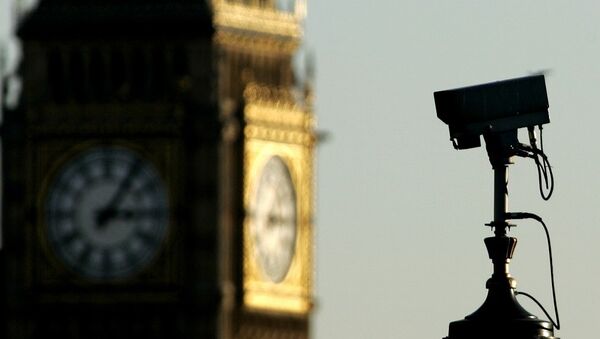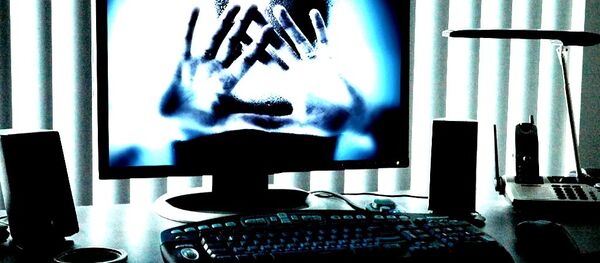The question of surveillance and whether the UK is severely violating the civil liberties of Britons has once again been ignited by the Channel 4 program 'Hunted,' which puts regular members on a task to try and evade detection from a team of law enforcement and intelligence investigators.
The program has exposed the extreme tracking devices in Britain, with many people highly critical of the fact that it is nearly impossible to escape the view of Big Brother.
Big Brother Is Watching
Britain has one of the most extensive surveillance networks in the world, with some estimates suggesting there are 6 million CCTV cameras in operation in the country, with a 2013 security industry report saying that there is a CCTV camera for every 11 people — more per capita than any European state.
The extent of such surveillance features in everyday life as well, with a 2011 UK police report concluding that an average person is caught on CCTV 70 times a day, while there was outrage after it was revealed that some retail store mannequins were fitted with facial recognition technology to track the age, sex and race of customers in order to help with marketing purposes.
The extent of security cameras is clearly evident in popular public places with London's Victoria train station alone housing 82 surveillance cameras.
On top of the extensive use CCTV, there are 8,000 Automatic Number Plate Recognition (ANPR) cameras on British roads, spread across 500 different sites, which can also be used to trace the movements of people.
Also, the proliferation of various electronic cards, such as London's 'Oyster' transport ticket and various bank cards, have helped authorities track the movements of those under scrutiny.
Your Phone Knows Where You Are
While cameras are the most overt form of tracking and tracing people's movements, gadgets such as smartphones and androids can also be used to identify someone's location.
35 million people own smartphones in the UK, with most makes featuring an exact GPS location signal. While many people see smartphone location services as a helpful tool when traveling, others say that it is an invasion of privacy as authorities can actively monitor someone's location, given they are carrying their phone.
Ppl globally are asking GCHQ if their comms were illegally spied on. You can too. Here's how: https://t.co/yHZPrWOmQ1 pic.twitter.com/b5k8iD6Zbn
— PrivacyInternational (@privacyint) September 16, 2015
The concerns over authorities being able to track down someone's movements is also backed up by stats which show that UK police requests to access phone calls and emails are granted 93 percent of the time. On average, requests are made every two minutes, with last year seeing an all time high in police requests for phone and email information, topping out at nearly 250,000.
Advocates of such an approach argue that being able to track people and access their information is in the matter of national security, as it allows intelligence services and law enforcement authorities to monitor people suspected of being involved in criminal activities.
However, critics argue that British authorities have been abusing surveillance powers, pointing out a recent case where Britain's data agency GCHQ was found to have unlawfully spied on two NGOs — the South African Legal Resources Centre (LRC) and the Egyptian Initiative for Personal Rights (EIPR).
The Digital Footprint
On top of camera use and personal tracking devices, there are also privacy concerns over the UK's online data retention, with people inadvertently leaving a 'digital footprint' after simply browsing the Internet.
Data is collected every time someone visits a website, shops online, or even takes part in social media, with concerns that such information could compromise the privacy of the general public.
Many have argued that online privacy laws are too lucid and allow for widespread online surveillance of personal information and online activity.
There has also been criticism of the UK's proposed Investigatory Powers Bill — dubbed the Snooper's Charter — which could force Internet and phone companies to keep the online data collected from someone's web browsing for up to a year.
The issue of web surveillance has been thrust into the public spotlight in recent years, following the revelations of former National Security Agency (NSA) worker Edward Snowden, who uncovered numerous leaks alleging British and American authorities were engaged in many illegal tracking, bugging and monitoring activities.






